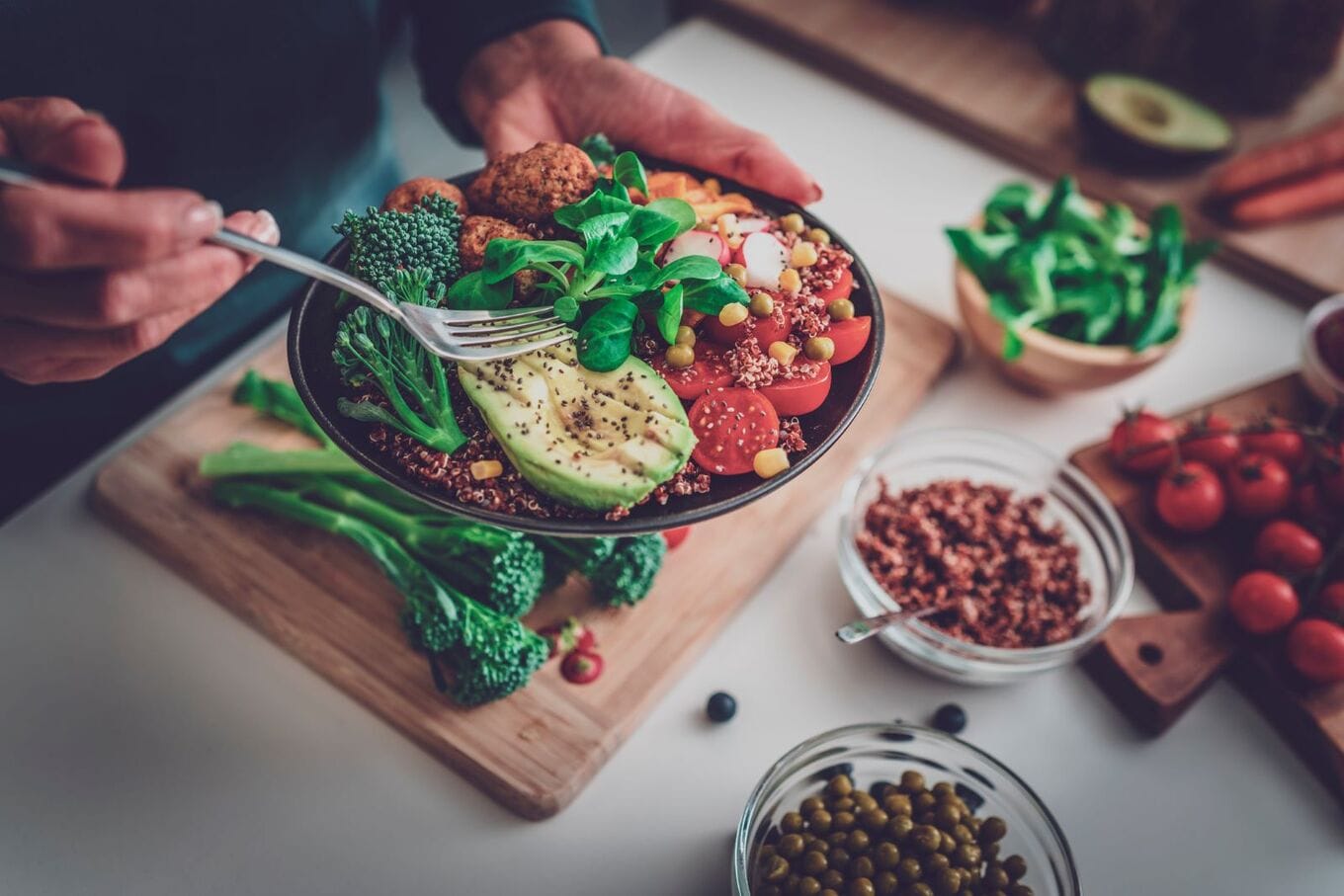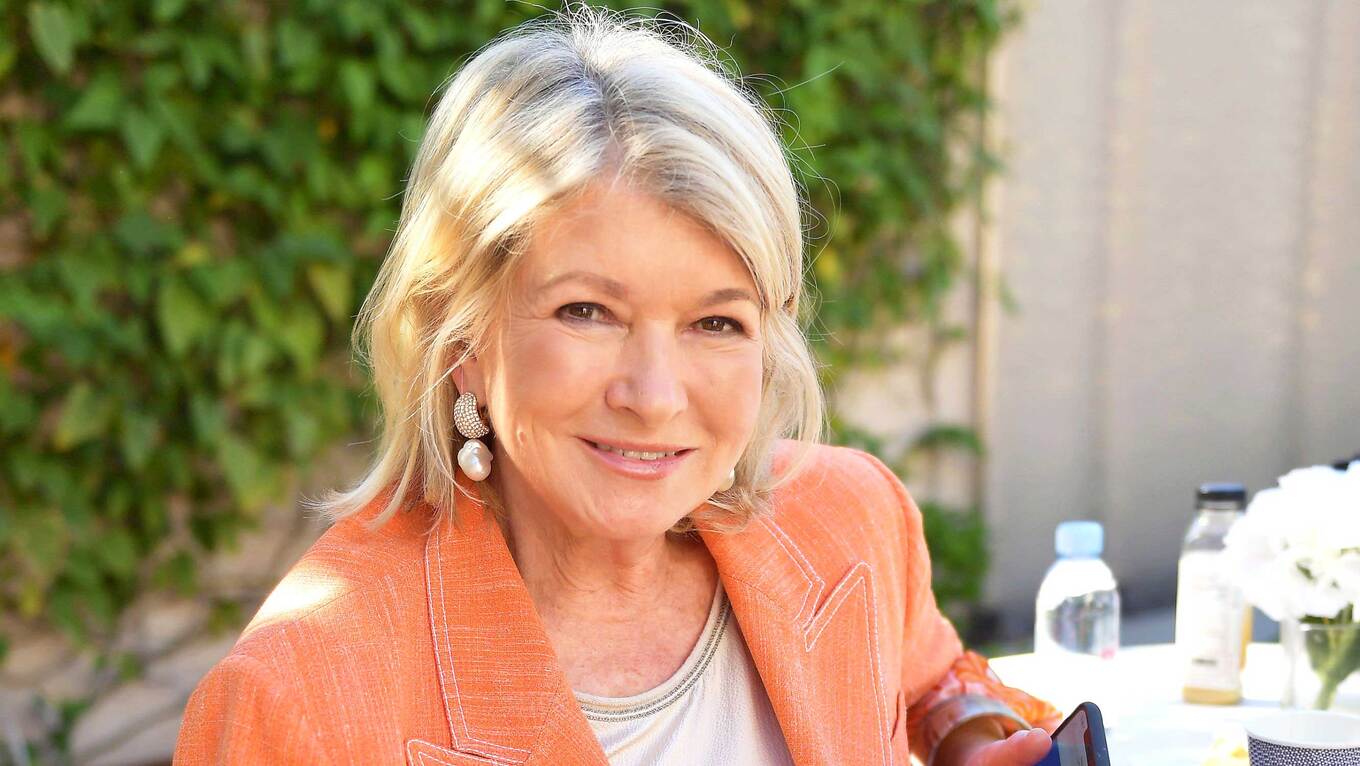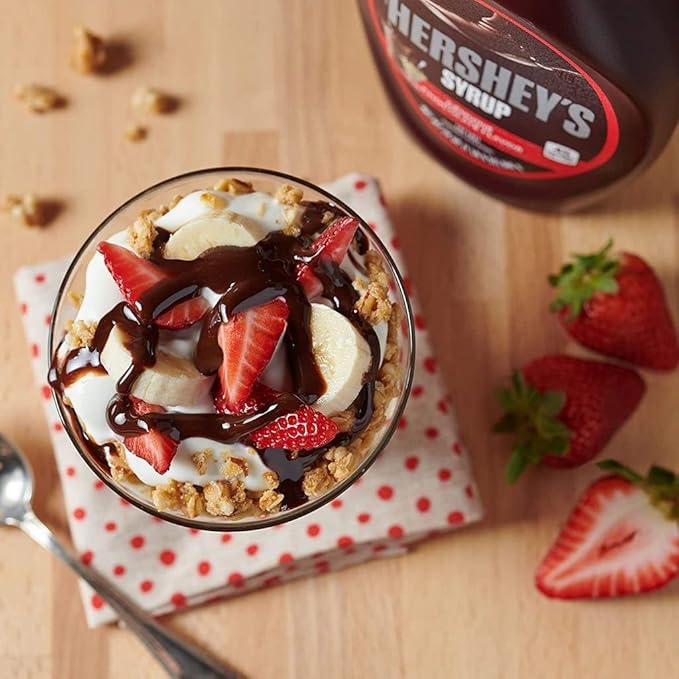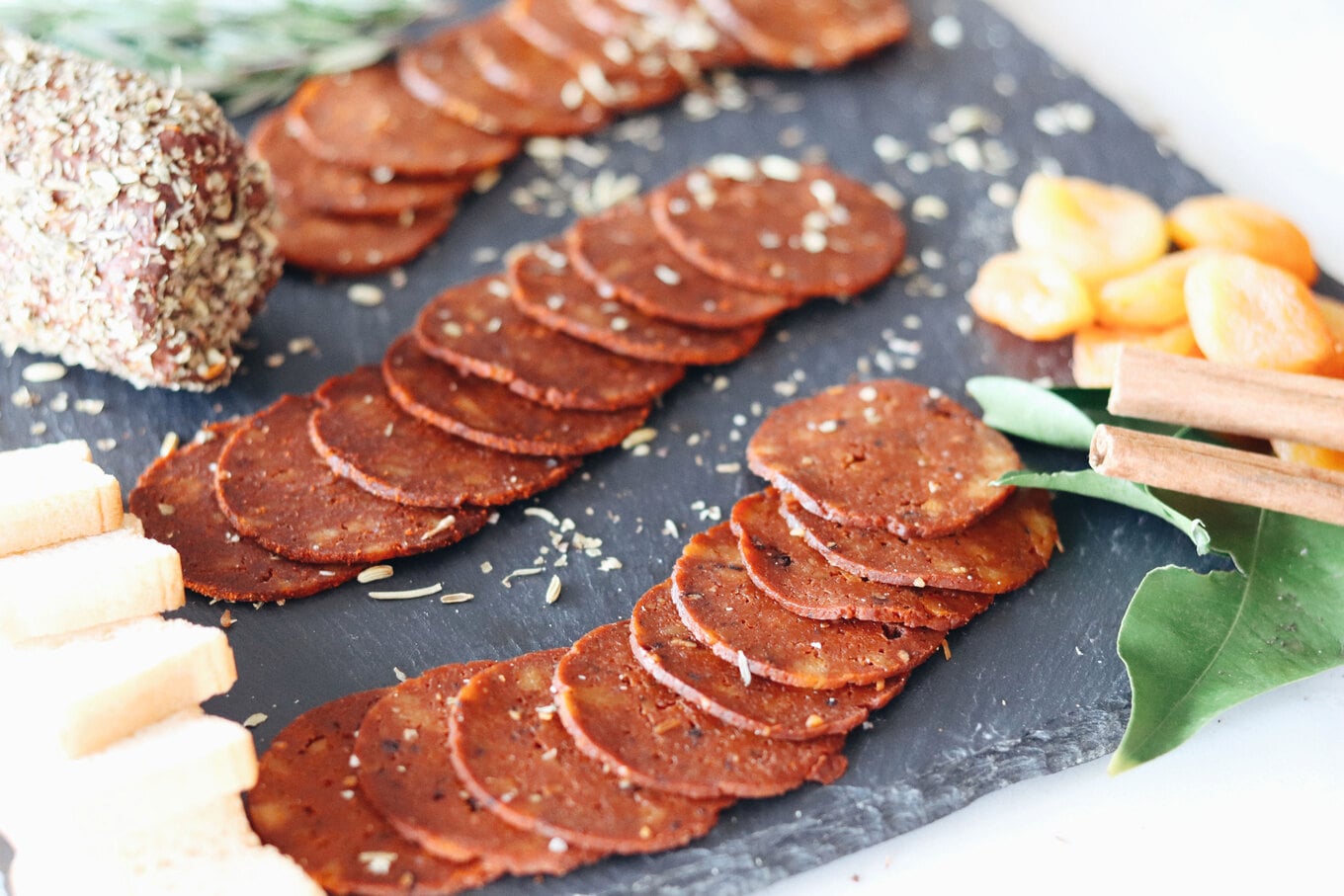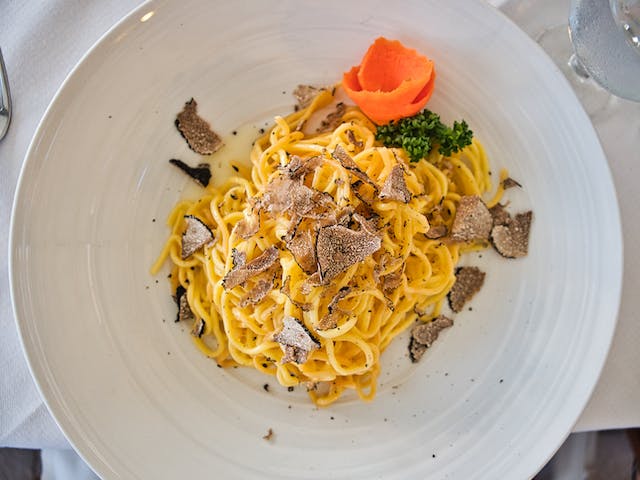Last October, we secured the beloved vegan carrot cake recipe from baker Patti Dann of the widely distributed Cafe Indigo brand, and VegNews readers ate it up. Dann held onto this simple yet elusive recipe for 15 years and chose to share it exclusively with us, but now, we want seconds.
After deciding to close the Cafe Indigo line of wholesale baked goods to focus more on cookbook writing and her grandchildren, Dann was kind enough to release her recipes to the world. Many dishes and sweet treats from the original Cafe Indigo restaurant have been recorded in her two books—Simple Vegan Comfort Food and Vegan Kids in the Kitchen—but you can’t find her mouthwatering chocolate cake anywhere online … until now.
As a follow up to the popular carrot cake, Dann has shared her moist, super chocolatey vegan cake recipe with us. We are honored to pass it on to you. But before you gather the ingredients and preheat your oven, keep reading to learn more about the family history behind this cake, baking science, and Dann’s tips for making this recipe foolproof.
Table of Contents
Grandma’s chocolate cake
When the Dann family adopted a vegan diet, prompted by teenaged and adult daughters, Patti went into trial-and-error mode in the kitchen. She experimented and tweaked favorite family recipes to suit a plant-based lifestyle, from Reuben sandwiches stuffed with homemade seitan to the now-legendary carrot cake. As luck would have it, her grandmother’s chocolate cake did not need any plant-based adjustments; it was vegan as-is.
VegNews
“Accidentally vegan” cakes—also known as Wacky Cakes or Crazy Cakes—are originally a result of the Depression era. Home cooks were challenged due to rationing, and traditional cake ingredients such as butter, milk, and eggs were in limited supply. In times of hardship, one adjusts, and Americans would not go without their cake.
Food historian Lynn Oliver speculates that Wacky Cake came from many home baker experimentations. Vinegar was a popular ingredient in the late nineteenth century, and bakers used this seminal ingredient to react with baking soda and create lift, replacing the need for eggs.
Dann’s grandmother’s chocolate cake recipe is a standard Wacky Cake. “Coffee was considered a luxury and [Grandmother] would never make a pot of coffee for a cake recipe. Instead, she used whatever was leftover that day,” Dann even wrote in the headnotes. Not all Wacky Cakes call for coffee, but they are known for varying slightly between households. Dann’s grandmother wasn’t about to go to any trouble to make coffee for a cake, but even leftover coffee helped to intensify the chocolate flavor and transform a humble dessert into something worthy of celebration.
Dann told us that she never had the opportunity to bake this cake with her grandmother, but she emphasized her grandmother “was the definition of unconditional love.” Making this cake was just a small gesture to show she cared.
Dann has changed very little about this cake. Other than adding a bit more vanilla and using decaf coffee, Dann’s recipe stays true to the one her grandmother used to make decades ago.
Baking 101: baking science and tips for the perfect cake
Baking is both simple and complex—anyone can bake, and bake well, but they must understand that baking is a combination of science, creativity, and (while this last part isn’t proven) love. If you can follow a recipe, you don’t necessarily need to know what reacts with what to create lift or the moisture-absorbing properties of certain flours, but here at VegNews, we like to geek out.
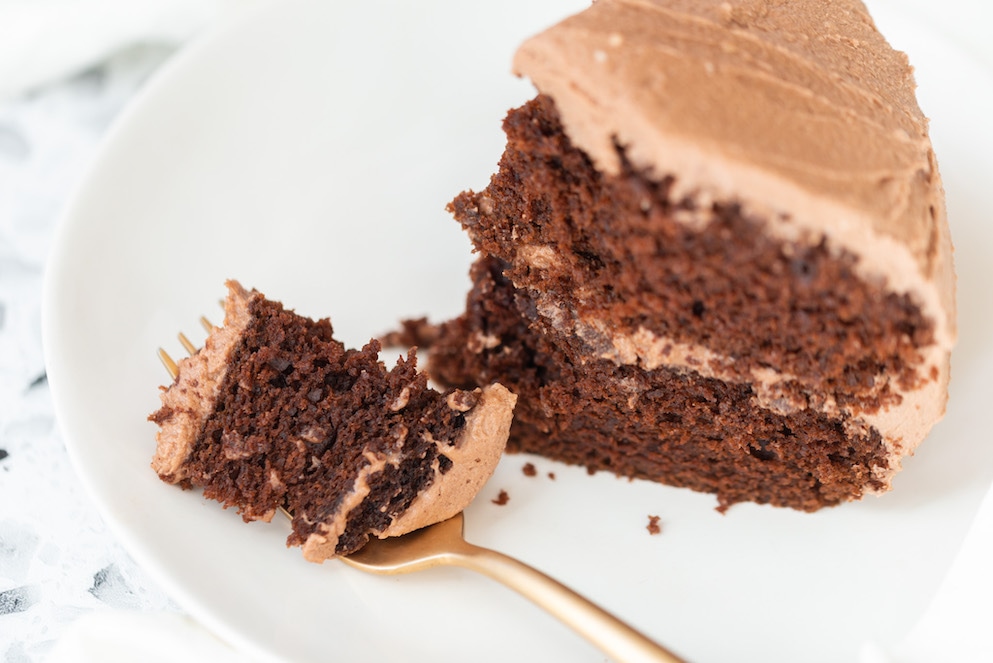 VegNews
VegNews
First, let’s talk cocoa. There are two varieties you’ll most likely come across at the store: Dutch process and natural. Dutch process is darker than natural cocoa powder and has a smoother taste. At a pH level of 7 or higher, it’s not acidic and doesn’t react with alkaline leaveners like baking soda (a key ingredient in Wacky Cake). Natural cocoa powder is slightly more bitter and has a pH of 5 to 6 and reacts well with baking soda. For this reason, Dann prefers natural cocoa powder, though she does say you could use Dutch in a pinch. Her favorite natural cocoa powder brand is Lake Champlain’s Organic Unsweetened Cocoa Powder. If it’s your first time baking this cake, we recommend making the recipe as-is. You can experiment later.
Speaking of the recipe, Dann says the most common mistake she sees novice bakers make is not reading the recipe in its entirety before starting to bake. “As a result, they may miss something,” Dann said. Forgetting to add baking soda or even salt would result in an “interesting” cake as her grandmother used to say.
However, Dann isn’t one to fault a mistake. “Some of the best things I’ve made were the result of mistakes,” Dann admitted.
“The thing to remember is that baking isn’t an exact science; trying new things and flavor combinations is half the fun,” Dann said.
Vegan chocolate cake variations
In the US, most standard, home-baked chocolate cake recipes call for American buttercream frosting—a whipped combination of butter, powdered sugar, and a flavoring element like cocoa powder, alcohol, or vanilla. We were intrigued to find that Dann’s recipe is slathered with a vegan chocolate cream cheese frosting.
“I was in a rush one day and had extra cream cheese frosting from a carrot cake I had just made and simply added cocoa powder to save time. I really liked the result and preferred it to the buttercream frosting. The rest is history,” Dann said.
Unable to move on from the fascinating topic of frosting, we asked Dann what she thought about the optimal buttercream-to-cake ratio. We were a bit surprised to discover that Dann doesn’t have much of a sweet tooth, so she prefers a light hand when it comes to frosting. Her husband, however, enjoys “a nice thick layer … 25 percent frosting to cake.”
True to her not-so-sweet tooth, Dann recommended adding fresh raspberries or strawberries between the layers in lieu of a thick buttercream. She also makes a holiday version of this cake by swapping the cream cheese frosting for peppermint frosting and sprinkling the top layer with crushed candy canes. “It is inspired by hot chocolate with a candy cane stirred,” Dann explained.
Let’s get baking. See the recipe for Patti Dann’s Vegan Chocolate Cake below.
Café Indigo’s Chocolate Cake
What you need:
For the cake:
3 cup flour
⅔ cup cocoa
2 teaspoons baking soda
1 teaspoon salt
2 cup sugar
1 cup canola oil
2 cup cold coffee
1 tablespoon plus 1 teaspoon vanilla
¼ cup vinegar
For the cream cheese frosting:
1 (8-ounce) container vegan cream cheese
8 tablespoons vegan butter, room temperature
4 cups powdered sugar
1 tablespoon vanilla extract
What you do:
1. For the cake, preheat oven to 325. Line 2 9” cake pans with parchment paper and set aside.
2. Place dry ingredients in mixing bowl, add oil, coffee, and vanilla (a little at a time to keep it from splashing all over you) Mix until smooth, about 5 minutes.
3. Add vinegar last and mix for 1-2 minutes—batter will become lighter in color and you will see bubbles forming.
4. Divide the batter evenly between the 2 pans. Immediately put the pans in the oven and bake at 325 for 45-50 minutes or until toothpick comes out clean.
5. Make the buttercream. In a stand mixer, mix the cream cheese until blended. Add the powdered sugar and mix until smooth. Add the cocoa powder (I recommend using a sifter) and vanilla and mix on medium for about 5 minutes until smooth.
6. Place the cooled cake on a plate. Spread ⅓ of the frosting on the cake. Put the second cake on top and frost with the remaining frosting. Share with friends.


